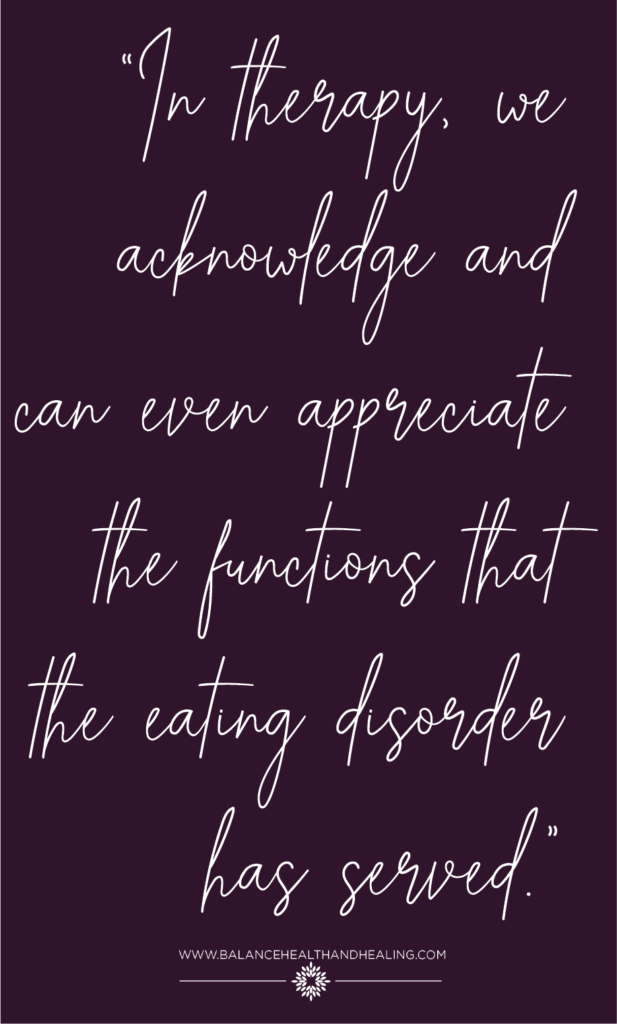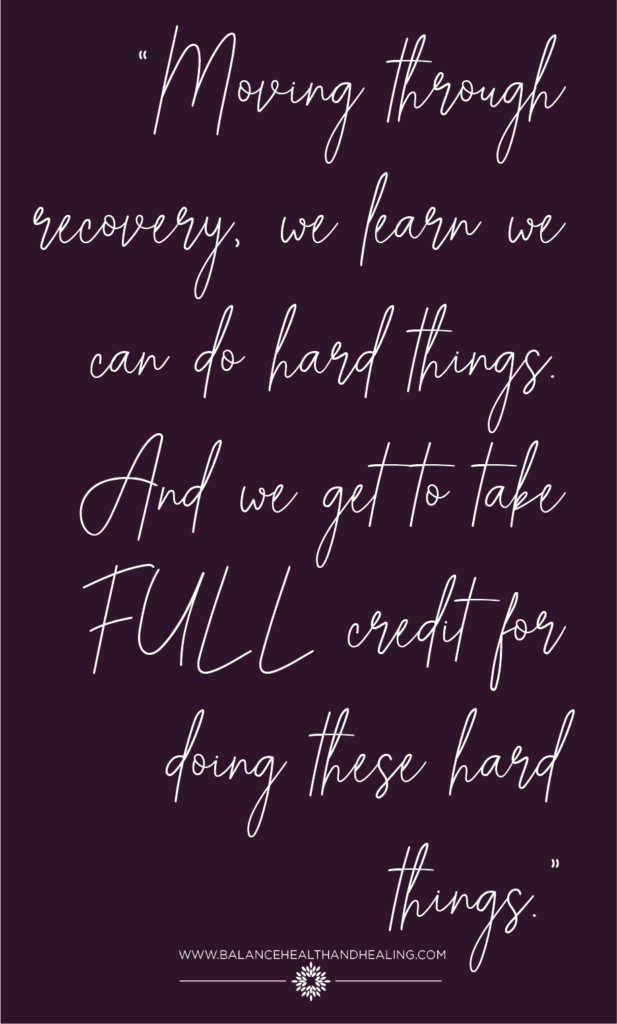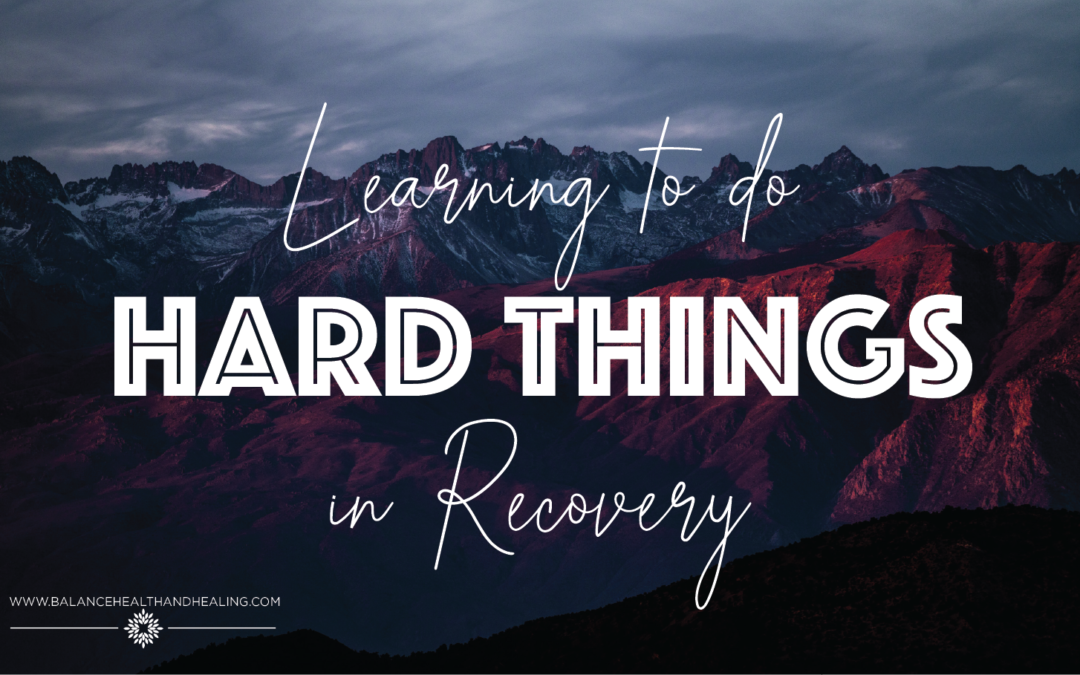Like many people who struggle with eating disorders, my eating disorder developed during a difficult time in my life. When I hear clients talk about their eating disorders, it’s never a surprise to hear them describe how their eating disorder helped them through a really hard time. One of the many functions of eating disorders is to help individuals numb out from their emotions, which is a welcome reprieve in a distressing experience. Another function is to feel a sense of control, which can feel particularly important if their life feels out of control. These are just two potent functions that help us understand why eating disorders “work” for people.
 When I work with clients to move toward recovery from an eating disorder, it is very important to understand all the ways in which clients experience their eating disorder as helpful. In therapy, we acknowledge and can even appreciate the functions that the eating disorder has served.
When I work with clients to move toward recovery from an eating disorder, it is very important to understand all the ways in which clients experience their eating disorder as helpful. In therapy, we acknowledge and can even appreciate the functions that the eating disorder has served.
What is also important, however, is to not give more credit to the eating disorder, than what is due. I want my clients to clearly understand that while their eating disorder may have indeed, helped them survive, their eating disorder will never allow them to thrive.
Eating disorders, by their very nature, limit one’s capacity to live meaningfully. Eating disorders do not help individuals develop valuable and crucial life skills that will ultimately help them live the life they really want for themselves.
In the same vein, however, there is something valuable individuals master in the course of having an eating disorder that sets them up well to take crucial steps toward recovery: determination. It takes intense determination to have an eating disorder. That same determination, when channeled toward recovery and then life beyond, is a powerful component used in developing adaptive skills that move one toward thriving.
Recovery is the process of learning to live without an eating disorder. This involves developing and using new skills. This includes, but is not limited to: distress tolerance, emotion regulation, coping strategies, value identification and orientation, body and food peace, vulnerability, authentic connection with others, challenging and dismantling shame, internal sense of worthiness, self-compassion, and resiliency.
but is not limited to: distress tolerance, emotion regulation, coping strategies, value identification and orientation, body and food peace, vulnerability, authentic connection with others, challenging and dismantling shame, internal sense of worthiness, self-compassion, and resiliency.
Recovery is damn HARD. It requires the full mastery and consistent use of these skills. Moving through recovery, we learn we can do hard things. And we get to take FULL credit for doing these hard things.
And the skills learned in recovery, are more than skills to overcome an eating disorder: they are life skills. Recovery begins a momentum of building confidence in our own ability to tackle life and its inherent challenges on our own merit.
I’ve gone through a lot in my life since I’ve recovered from my eating disorder. Indeed, I have gone through a time when I felt completely shattered and broken. I didn’t know how I would come back from such a dark place, but slowly, over time, by using those skills mentioned before, as well as relying on loved ones and my Higher Power, I came out the other side, stronger than I knew I could be. I now face life knowing, from experience, that I CAN DO HARD THINGS. I can be resilient and weather storms because I use the tools, and people, I need to get through them. And when life is sunny, I live a life of meaning, purpose, and connection. In other words, I thrive.
YOU too can do hard things. You too can build mastery of the skills you need to weather your own storms and live a life where you find yourself thriving. Both in recovery and beyond. So much joy awaits you, in The Beyond. Keep going! You are stronger than you know!

